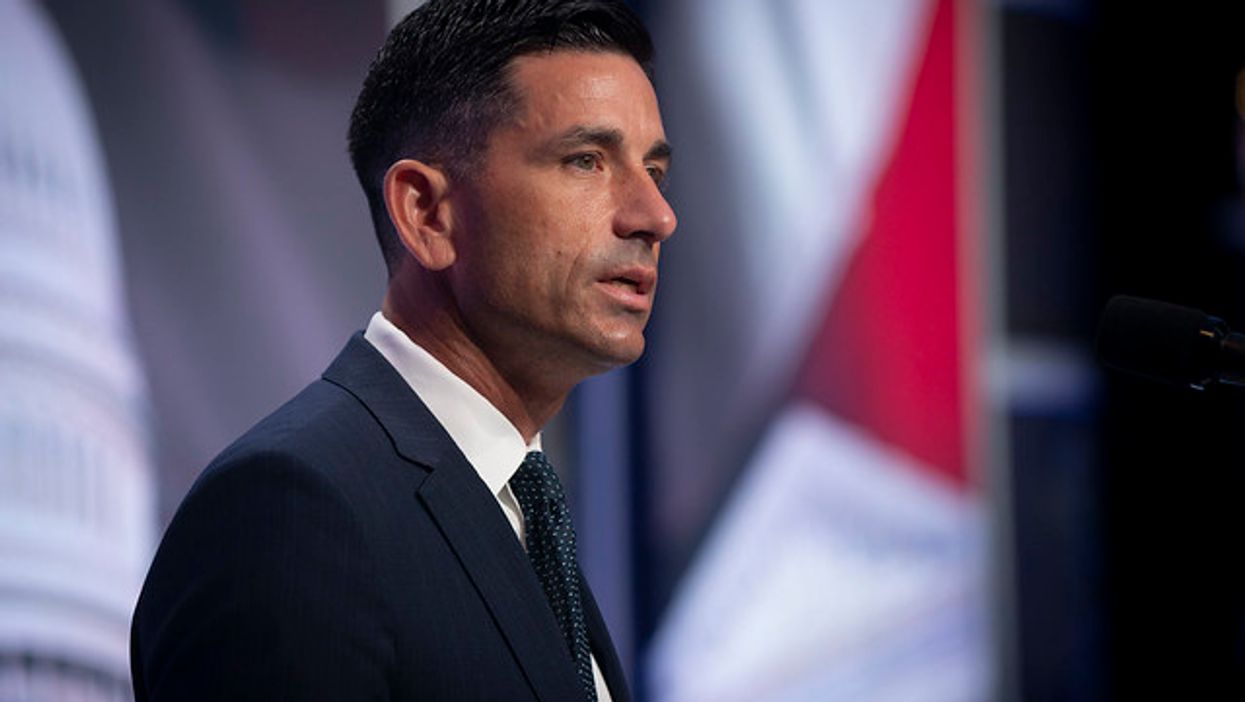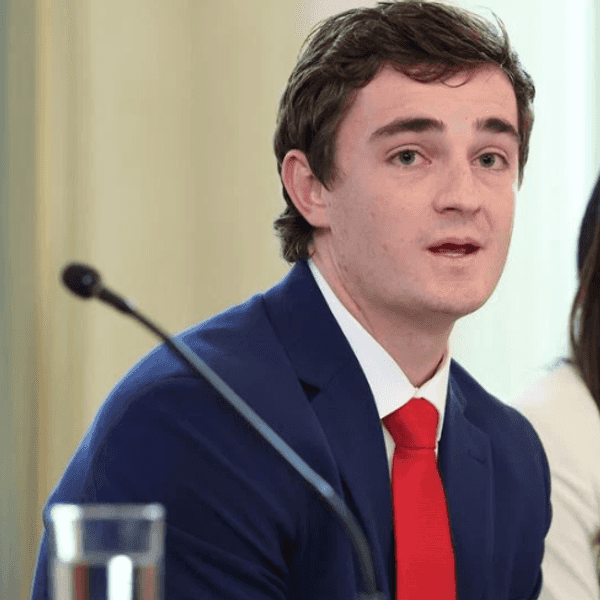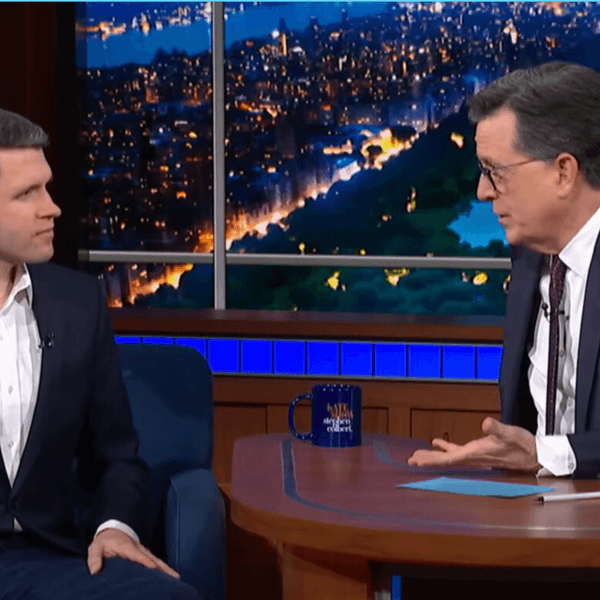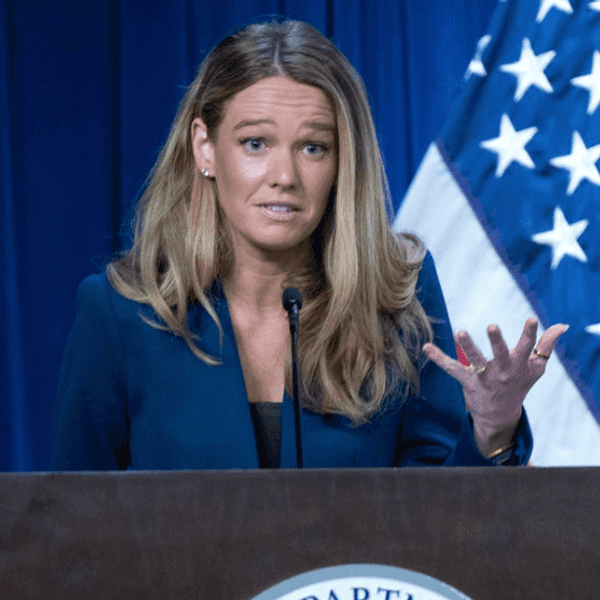Reprinted with permission from DC Report
Lost in the news on the day of Trump's Insurrection was a devastating new watchdog report to Congress on the politicizing and distorting of intelligence during Donald Trump's time in office.
The analytic ombudsman, career intelligence community veteran Barry A. Zulauf, determined that under Trump national intelligence reports had become highly politicized. Important findings were suppressed to appease Trump's refusal to acknowledge Russian interference in American elections.
Zulauf's unclassified report paints a frightening picture of just how much the Trump administration skewed intelligence to suppress knowledge of interference by Russia in our 2020 elections.
From March 2020, in the critical months leading up to the elections, Zulauf "identified a long story arc of—at the very least—perceived politicization of intelligence."
Zulauf works in the Office of the Director of National Intelligence (ODNI), a Cabinet-level position created after the 9/11 terrorist attacks to oversee all U.S. intelligence operations. Zulauf's job within the ODNI was created by Congress to assist analysts throughout the intelligence community with complaints and concerns about politicization, biased reporting or lack of objectivity in intelligence analysis.
Zulauf determined that Trump's ODNI took "willful actions that… had the effect of politicizing intelligence, hindering objective analysis or injecting bias into the intelligence process."
While Zulauf tried to avoid specifically naming individuals responsible for much of the political heavy-handed rewriting, he repeatedly called out actions taken by two recent Trump appointees, neither who possessed any chops as intelligence experts.
One is a former acting director, Richard Grenell. He had been a Fox News commentator and Trump-appointed ambassador to Germany. He took over the ODNI in February 2020 then relinquished the post the following May.
The second was the Texas congressman Trump appointed to replace Grenell, John Ratcliffe. He is best known as a fervent defender of the ex-president in his first impeachment.
In one particularly egregious example, Zulauf wrote, Ratcliffe insisted on highlighting Chinese election interference while downplaying Russian efforts.
"Ratcliffe just disagreed with the established analytic line on China, insisting 'we are missing' China's influence in the US and that Chinese actions ARE intended to affect the election," Zulauf wrote. "Ultimately the DNI insisted on putting material on China in…. As a result, the final published [assessment], analysts felt, was an outrageous misrepresentation of their analysis."
The intelligence community has procedures to make sure assessments are based on sound judgment by seasoned analysts, not rogue points of view especially when they are not supported by facts.
The Senate Intelligence Committee requested the ombudsman review possible politicization of intelligence. Interestingly, Zulauf noted, he had his own review under way when the Senate Intelligence Committee request arrived. The ombudsman started his own investigation after he was approached by ombudsmen at three other agencies within the intelligence community. They acted because intelligence agency professionals and managers perceived problems and were getting internal complaints about the politicization of intelligence.
Helsinki Betrayal
The findings came 29 months after Trump declared in Helsinki, standing next to Vladimir Putin, that he trusted the Russian leader but not the American intelligence services.
By putting his trust in Putin, a former KGB colonel, saying that he took him at his word when he denied interfering in the 2016 presidential election, Trump reiterated his denunciations of American intelligence services.
Trump refused on most days to sit for his intelligence briefing, a closely guarded summary of worldwide threats to America and its allies. The report is prepared by experienced analysts based on reports from 17 American intelligence agencies, which feed material to Central Intelligence Agency for consideration.
The Presidential Daily Brief is tailored to each sitting president's style. Trump's brief was reduced to simplistic points, often illustrated with graphics. Russian actions against the United States were often left out or described obliquely to avoid provoking Trump.
Trump would have found even simplified daily briefings difficult to grasp given his ignorance about geopolitical affairs and history. For example, he once asked aides if Finland was part of Russia. He met with the Baltic presidents and confused their countries with the Balkans.
Mueller's Warning
While Special Counsel Robert S. Mueller III was barred from investigating Trump's conduct as a counterintelligence matter, his office did look into Russian interference in the 2016 election.
On July 24, 2019, Mueller told the House Judiciary and Intelligence committees that Russia would continue interfering in our elections. "It was not a single attempt, [Russia's] doing it as we sit here," he testified. "And they expect to do it during the next campaign."
Yet eight months later, on March 10, 2020, in presenting the views of the intelligence community, William R. Evanina, director of the National Counterintelligence and Security Center (NCSC), briefing members of Congress on election interference, said the opposite. He told lawmakers in a closed-door session for which summaries were released that there was no evidence that Russia had taken steps to help any candidate in the 2020 elections.
Analysts refer to talking points in these March statements, as well as subsequent statements in July, August and October 2020 as examples of "gross misrepresentation" of established intelligence community views.
The ombudsman's report attributed the rationale for these distortions and lies to the opposition they faced "getting their views on election interference across…in a confrontational environment."
But it did not assert that Trump directly ordered them. Several House managers noted during impeachment and Trump's better biographers have long noted that Trump gives direction the way mob bosses do to avoid culpability. Trump does not give a direct order, but expects people to interpret a wink and a nod or even just tone of voice.
Misleading Congress
The March assessment delivered to a House and Senate all-members meeting was brought by Evanina. Zulauf called this "the most egregious example" he uncovered of distorted intelligence.
When interviewed by the ombudsman, Evanina said he received his talking points from ODNI and National Intelligence Council (NIC) officials. He said that since they were directly from the ODNI and NIC he assumed the talking points represented the coordinated views of the intelligence community.
Zulauf said he could not find anyone at ODNI who wrote or contributed to the talking points Evanina used. The various individuals waved off the distortions on various excuses and reasons. Zulauf did not accuse them directly of lying and denying.
However, Zulauf said "red flags" were ignored. He took note of "widespread reluctance among intelligence professionals to deliver" assessments. "This reluctance on the part of seasoned IC [intelligence community] officers should have been a red flag but did not stop the statement from being issued."
Despite leadership's efforts to downplay any threat of Russian interference, the report was unequivocal on what U.S. intelligence analysts who specialized in Russia were seeing. It said, "Russia analysts assessed that there was clear and credible evidence of Russian election influence activities."
Analysts expressed frustration that political appointees were suppressing the actual intelligence because it was not well received at the Trump White House. The analysts told the ombudsman that their intelligence was being suppressed and politicized as the ODNI leaders cherry picked intelligence supporting a narrative that Trump wanted rather than presenting facts.
Mulvaney's Warning
The information contained in the report further supported a story in April 2019 by The New York Times about a warning by Mick Mulvaney, then-White House chief of staff. Mulvaney, it was reported, told Kirstjen Nielsen during her stint as head of the Department of Homeland Security not to speak with Trump about Russian attempts to interfere in future U.S. elections.
That revelation by journalists, now buttressed by Zulauf, illustrates how Trump's disregard for and suppression of intelligence assessments about Russian interference consistently made its way to the Cabinet and the highest levels of the intelligence community. It had a clear impact of how intelligence was written up and disseminated.
Zulauf wrote that in May 2020, the acting director of National Intelligence, Grenell, delayed the release of a memo for "politically motivated editing."
The changes "buried the lead," Zulauf wrote, regarding known election security threats. Analysts found intelligence community leadership consistently "watered down conclusions" and were "boosting the threat from China."
Overstating the threat from China also minimized, and distracted from, actual threats from Russia. Instead of speaking on Russia, leaders regularly pivoted instead to China.
In an interview on Oct. 6, 2020, Rep. Adam Schiff (D-Calif.), who heads the House Intelligence Committee, addressed similar statements by then Attorney General William P. Barr. Schiff is one of the "Gang of Eight," the bipartisan leaders in Congress who are regularly let in on the highest levels of intelligence. The attorney general had just asserted that China posed the greatest threat to U.S. elections based on intelligence he had seen.
Barr Called A Liar
"That's just a plain false statement by the attorney general, a flat-out false statement," Schiff said. "You can tell that Bill Barr is just flat-out lying to the American people, and it's tragic but it's as simple as that."
The United States spends hundreds of millions of dollars each day to monitor activities around the world, including efforts by China, Iran, Russia and other countries to probe government and business computer networks. The Russians are known to have the ability to open and close floodgates on American hydroelectric dams. That prompted us to quietly take actions against the Russian electric grids to make clear that any disruption of the dams would come with consequences.
Decades-Long Seduction
For decades, the Russians courted Trump, one of many prominent people around the globe sought by intelligence services as potential assets. A former KGB spy who had a cover working in Washington for the Russian government-controlled news agency TASS recently told The Guardian that Trump was cultivated as a Russian asset during 40 years.
When Trump became president, the Kremlin hit the biggest intelligence jackpot imaginable. The first known payoff came in May 2017, just weeks after Trump took his oath to defend America against foreign enemies.
Trump held an unannounced meeting in the Oval Office with the Russian foreign minister and the Russian ambassador. In that meeting Trump revealed the most sensitive intelligence material, known as sources and methods.
Disclosing sources and methods would naturally discourage friendly governments from sharing many of their own intelligence findings. Their spies and ways of uncovering information could be compromised, even ruined, with the potential that the spies would be assassinated by the Russian government.
We know this because the Russians announced what Trump had done. The same government-controlled TASS news agency released photos of a smiling Trump with the two grinning Russian officials taken by a Russian photographer who was let into the Oval.
The Russian officials, Foreign Minister Sergei Lavrov and Ambassador Sergey Kislyak, are, like Putin, trained spies.
President Joe Biden's announcement on Feb. 5 that he will not grant Trump the courtesy of intelligence briefings was summarized by Schiff as an important move to protect America's national security.
Schiff tweeted: "Donald Trump politicized and abused intelligence while he was in office. Donald Trump cannot be trusted with America's secrets. Not then, and certainly not now. Americans can sleep better at night knowing he will not receive classified briefings as an ex-president."












